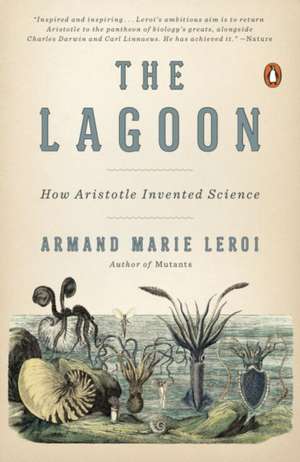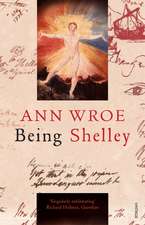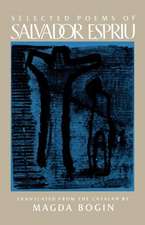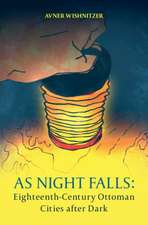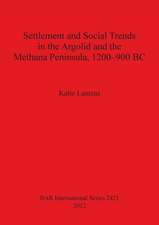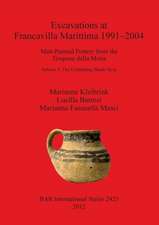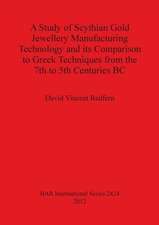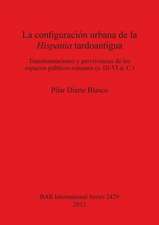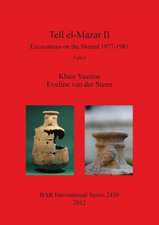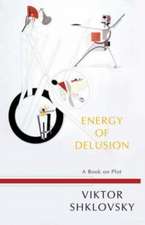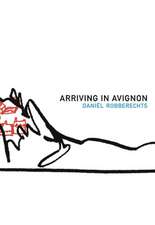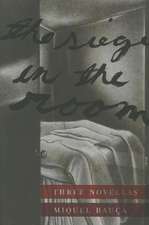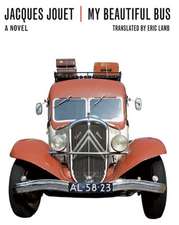The Lagoon: How Aristotle Invented Science
Autor Armand Marie Leroien Limba Engleză Paperback – 7 dec 2015
Vezi toate premiile Carte premiată
Kirkus Prize (2014)
Both a travelogue and a study of the origins of science, "The Lagoon" shows how an ancient thinker still has much to teach us today. Aristotle s philosophy looms large over the history of Western thought, but the subject he most loved was biology. He wrote vast treatises on animals, dissecting them, classifying them, recording how they lived, fed, and bred. He founded a science. It can even be said that he founded science itself.
In this luminous book, acclaimed biologist Armand Marie Leroi recovers Aristotle s science. He explores Aristotle s observations, his deep ideas, his inspired guesses and the things he got wildly wrong. Leroi visits the Aegean island where Aristotle plumbed the secrets of the living world in all its beauty. Modern science still bears the stamp of its founder. "The Lagoon" reveals that Aristotle was not only the first biologist, but also one of the greatest."
| Toate formatele și edițiile | Preț | Express |
|---|---|---|
| Paperback (2) | 65.23 lei 3-5 săpt. | |
| Bloomsbury Publishing – 26 aug 2015 | 65.23 lei 3-5 săpt. | |
| Penguin Books – 7 dec 2015 | 145.34 lei 3-5 săpt. |
Preț: 145.34 lei
Nou
Puncte Express: 218
Preț estimativ în valută:
27.81€ • 30.30$ • 23.43£
27.81€ • 30.30$ • 23.43£
Carte disponibilă
Livrare economică 02-16 aprilie
Preluare comenzi: 021 569.72.76
Specificații
ISBN-13: 9780143127987
ISBN-10: 0143127985
Pagini: 512
Dimensiuni: 140 x 213 x 28 mm
Greutate: 0.53 kg
Editura: Penguin Books
ISBN-10: 0143127985
Pagini: 512
Dimensiuni: 140 x 213 x 28 mm
Greutate: 0.53 kg
Editura: Penguin Books
Notă biografică
Armand Marie Leroi
Caracteristici
Mixes the appeal of books about the classical world, such as Stephen Greenblatt's The Swerve, those on natural and scientific history, including The Naming of Names by Anna Pavord and Lisa Jardine's The Curious Life of Robert Hooke and natural history writing like that of Robert Macfarlane
Recenzii
In elegant, stylish and often witty prose, he probes the near-legendary, almost primeval lagoon which inspired the ancient Greek's Historia animalium and animates it anew with his own incisive observations ... The Lagoon is a heroic, beautiful work in its own right, an enquiring odyssey into unknown nature, and the known world which science has created out of it
Leroi clearly adores Greece and he uses his detailed local knowledge to splendid effect, evocatively re-creating the experiences of the peripatetic philosopher . Leroi is absolutely right to say that even those sections of Aristotle's work we no longer believe to be correct have affected the knowledge that we have today
In this lush, epic and hugely enjoyable book, biologist Armand Marie Leroi explores the idea that it was another ancient Greek giant whose shoulders we may all stand upon . Leroi is a beautiful writer and it's been too long, a decade, since his last outstanding book
Brilliant . Not just a charismatic book, but one that places Aristotle in a freshly Aegean context . Above all, Leroi shows, science today trawls through reams of data for patterns and explanations, in precisely Aristotle's manner
Leroi takes us through Aristotle's work, finding hints of modern thinking everywhere . The Lagoon bubbles with enthusiasm for its subject, making an absolutely gripping read out of what might have seemed the most unlikely material
Compelling, sometimes contentious, and always thought-provoking . It celebrates what is most admirable in the Aristotelian tradition: its appreciation of what is actually there
How Aristotle nearly beat Darwin to a theory of evolution. Brilliant
In the History of Animals "[Aristotle] speaks of the reproduction of lice, the mating habits of herons, the sexual incontinence of girls, the stomachs of snails, the sensitivity of starfish, the dumbness of the deaf, the flatulence of elephants and the structure of the human heart: his book contains 130,000 words and 9,000 empirical claims". Leroi's own uncompromising investigation gives us a flavour of his subject's indefatigable explorations . Leroi does not upstage Aristotle's descriptions with modern anatomical illustrations, though his attractively illustrated discussions draw on much scholarship that has been expended on editing and interpreting Aristotle's ideas about nature . Leroi's scholarship is impeccable and consistently generous . Only an expert biologist with broad cultural sympathies and a deep feeling for history could have created such a compelling reappraisal of Aristotle's place in the history of science. What's in a name, indeed; in marshalling the facts and ideas that support Aristotle's scientific credentials in exuberant detail, Leroi must be accounted the king
Beautifully written
Remarkable
Leroi clearly adores Greece and he uses his detailed local knowledge to splendid effect, evocatively re-creating the experiences of the peripatetic philosopher . Leroi is absolutely right to say that even those sections of Aristotle's work we no longer believe to be correct have affected the knowledge that we have today
In this lush, epic and hugely enjoyable book, biologist Armand Marie Leroi explores the idea that it was another ancient Greek giant whose shoulders we may all stand upon . Leroi is a beautiful writer and it's been too long, a decade, since his last outstanding book
Brilliant . Not just a charismatic book, but one that places Aristotle in a freshly Aegean context . Above all, Leroi shows, science today trawls through reams of data for patterns and explanations, in precisely Aristotle's manner
Leroi takes us through Aristotle's work, finding hints of modern thinking everywhere . The Lagoon bubbles with enthusiasm for its subject, making an absolutely gripping read out of what might have seemed the most unlikely material
Compelling, sometimes contentious, and always thought-provoking . It celebrates what is most admirable in the Aristotelian tradition: its appreciation of what is actually there
How Aristotle nearly beat Darwin to a theory of evolution. Brilliant
In the History of Animals "[Aristotle] speaks of the reproduction of lice, the mating habits of herons, the sexual incontinence of girls, the stomachs of snails, the sensitivity of starfish, the dumbness of the deaf, the flatulence of elephants and the structure of the human heart: his book contains 130,000 words and 9,000 empirical claims". Leroi's own uncompromising investigation gives us a flavour of his subject's indefatigable explorations . Leroi does not upstage Aristotle's descriptions with modern anatomical illustrations, though his attractively illustrated discussions draw on much scholarship that has been expended on editing and interpreting Aristotle's ideas about nature . Leroi's scholarship is impeccable and consistently generous . Only an expert biologist with broad cultural sympathies and a deep feeling for history could have created such a compelling reappraisal of Aristotle's place in the history of science. What's in a name, indeed; in marshalling the facts and ideas that support Aristotle's scientific credentials in exuberant detail, Leroi must be accounted the king
Beautifully written
Remarkable
Premii
- Kirkus Prize Finalist, 2014
